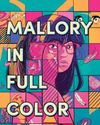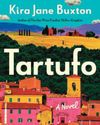
More than once, a switch in point of view has helped me find clarity in my manuscripts. When I started my debut novel, Post-High School Reality Quest, I had characters but no real plot. The story comprised mainly of a bunch of characters awkwardly hanging out in someone's basement. I let the draft sit in a drawer for a few years until a friend suggested writing a novel in the form of a text adventure game: an old computer game genre where the game is narrated to you in the second person (e.g., "You are in a cabin. There is a fishing pole."). One day when I was sick, I started playing with that second-person, text adventure narration in relation to these characters, and I got hooked. There was an energy to that second-person narration, and in telling the story from the game's perspective, it created a second character, giving my main character (Buffy) instructions. I realized if I was Buffy, I wouldn't want to follow the instructions given to me. That instantly created a sense of tension and conflict-what my old draft was missing. It became a framework for generating material, and playing with characters I liked but didn't know what to do with.
This story is from the July - August 2024 edition of Writer’s Digest.
Start your 7-day Magzter GOLD free trial to access thousands of curated premium stories, and 9,000+ magazines and newspapers.
Already a subscriber ? Sign In
This story is from the July - August 2024 edition of Writer’s Digest.
Start your 7-day Magzter GOLD free trial to access thousands of curated premium stories, and 9,000+ magazines and newspapers.
Already a subscriber? Sign In

What Is Your Story Question?
Revision and editing advice to take your first draft to the next level.

Writing for the People We Hope to Become
Elisa Stone Leahy's new middle-grade novel, Mallory in Full Color, tackles the in-between moments of adolescence, when who we are and who we want to become collide.

Creating Community
Whether hot off the presses or on the shelves for years, a good book is worth talking about.

Pat Barker
The Booker Prize-winning author of Regeneration shares the role characters play in developing novel ideas and explains what appeals to her about reimagining mythology.

How to Write in Different Genres
Emiko Jean and Yulin Kuang share tips and strategies for how they successfully write in different genres and mediums.

The Shortest Distance Between Two Points
Ten tips for writing a novel with 100-word stories.

Mayfly Marketing
How to sell your novel in a short-attention-span world.

"You'll be a great essay".
How to write six types of personal essays by finding the funny in your life.

The Idea Factory
Tired of staring at an empty screen? Unlock your inner fiction generator with these surprising inspiration techniques.

Seinfeld Was Right: That's a Story
Use mundane moments from everyday life to create stories that pack a punch.